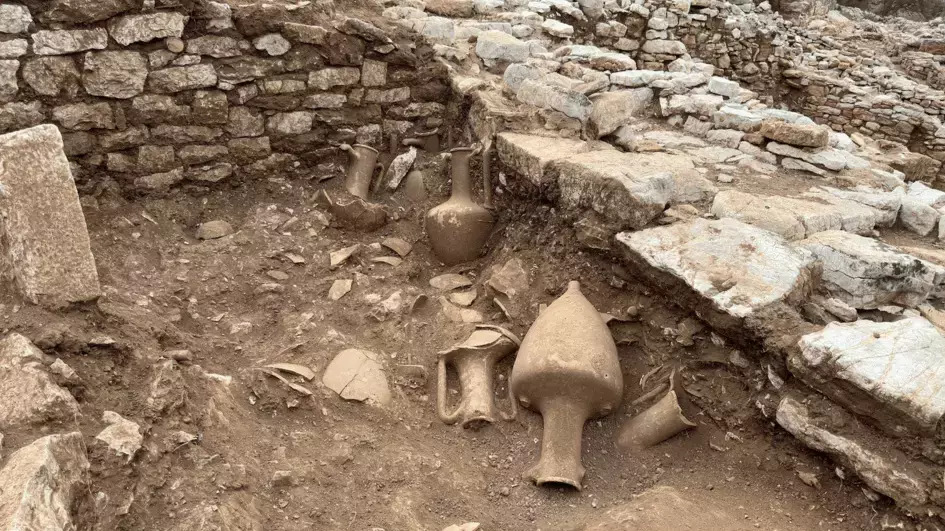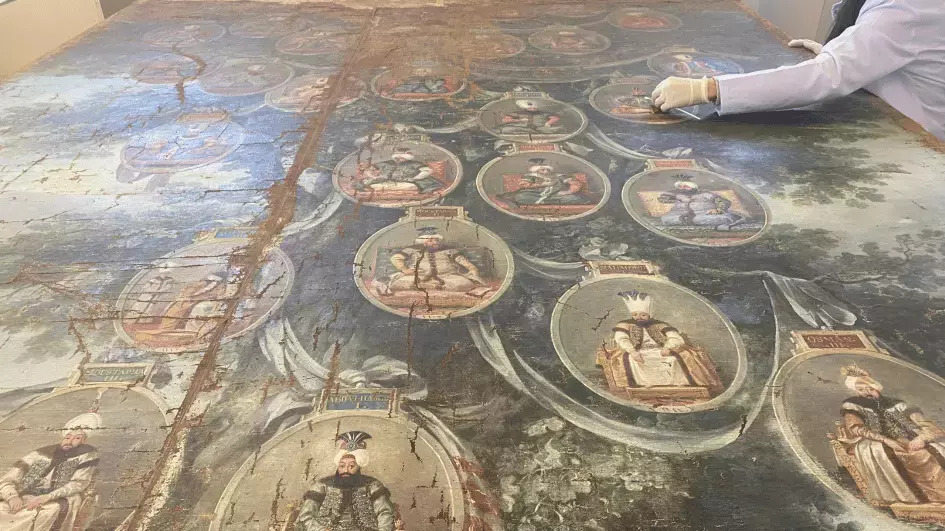During ongoing excavations in the ancient city of Amos, known for its nearly 3,000-year history and rich cultural heritage in the western town of Marmaris, a recent discovery has brought to light ten amphorae, vessels with vertical handles, shedding light on the city’s ancient culinary landscape.
Dating back to the 2nd century B.C., the amphorae, identified as Rhodes amphorae, were found near the surface, with one of them being remarkably intact while the others were in pieces, according to officials.
The exploration of Amos began in 2019 with surface research works, and it attained excavation status in the subsequent year under the leadership of Associate Professor Mehmet Gürbüzer from Muğla Sıtkı Koçman University’s Archaeology Department.
The recent findings add to the array of discoveries in Amos, including the identification of a structure referred to as a “thermopolium” from ancient times, serving a function similar to modern-day restaurants. This structure was located just east of the city theater, along with a section believed to have functioned as a storage area for the restaurant.
Gürbüzer expressed enthusiasm about the new discovery, emphasizing its implications for the ongoing excavation efforts. “We have come a long way in the fifth year of the work since 2019. The amphorae we found during the latest excavations indicate that there were food and beverage areas around the theater in the ancient city. Moreover, the amphorae we found are very close to the surface and they did not get much damage. I believe that we will be able to reveal the true face of the ancient city of Amos during excavations that will continue in the coming years, too,” he stated. The findings contribute valuable insights into the daily life and cultural practices of Amos, hinting at the possibility of further revelations in the future.







